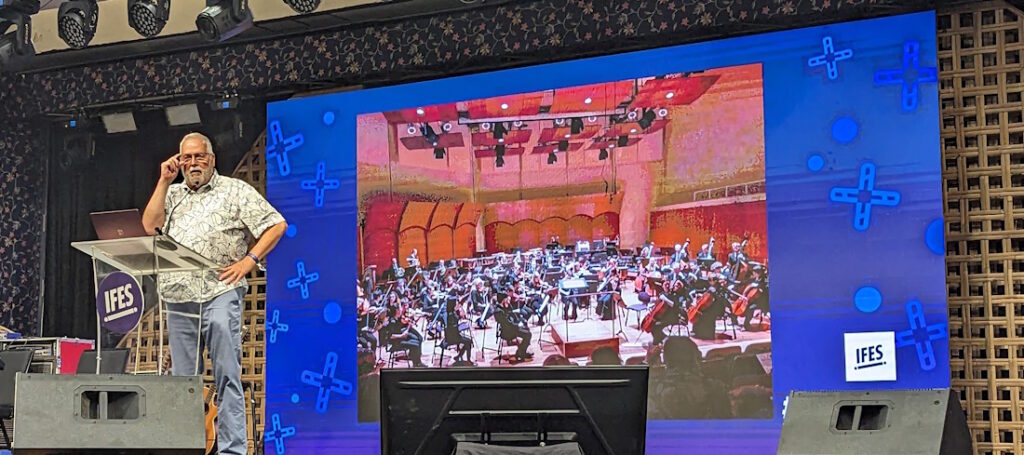“For God so loved the world,” proclaims the Gospel of John, which poses an intriguing question. Is this verse talking just about the people in the world or the whole of creation: animals, plants, the environment, etc.?
Rev. Ed Brown would say the latter. Brown is the Executive Director of Care of Creation, a Madison-based ministry. Speaking in Jakarta, Indonesia, Brown compared God’s creation to an orchestra.
“Every creature is an instrument in God’s orchestra,” he said. “We are not the conductor, God is. God wrote the music.”
Brown described the human race as the special instruments of the orchestra, specifically the first violin. The first violin gets the orchestra in tune. Chaos results when the first violin doesn’t do what it’s supposed to do.
“We’re off tune,” he said. “We’re playing a different beat. We are destroying the other instruments. That’s what sin has done.”
Brown is a former missionary to Pakistan, and has been involved in creation care for two decades. The movement has been slow to catch on within the evangelical church but perhaps the havoc created by floods, forest fires and related disasters in the last few years (the month of July was the hottest on record) has created a new willingness to reconsider the creation care as an important issue.
Certainly the evangelical leaders of the Lausanne Movement, an international evangelical network started by Billy Graham and John Stott, are on board. They have named Brown a Catalyst for Creation Care in their organization.
Brown was in Jakarta speaking at the World Assembly of the International Fellowship of Evangelical Students (IFES). Madison is home to one of the three International Service Centers of IFES (along with Oxford, England, and Kuala Lumpur, Malaysia). (Full disclosure, the editor of MadisonChristians.com works part-time for IFES/USA.)
Environmental devastation can be found almost everywhere. Brown noted that North Jakarta, where the conference convened in a resort hotel, is sinking at a rate of one foot/year because of the rate that ground water is being pumped from the ground. Because of that, Indonesia is going to move their capital to a completely new city.
Notwithstanding the decision by the Indonesian parliament, Brown noted that govenments and NGOs aren’t offering much hope that they can effectively address our environmental problems. “Our only hope is the church,” he proclaimed. “If we can’t wake up the church, no one else will.”
Christians might wonder if there’s a Scriptural mandate for environmental stewardship. Brown has no trouble finding applications from both the New Testament and the Old Testament. He chose to focus on the Apostle Paul’s letter to the Romans in his talk.
“Romans, chapter 8, is all about how much God loves us,” Brown said, “but notice verses 19-21: ‘…the creation waits in eager expectation for the children of God to be revealed…in hope that the creation itself will be liberated from its bondage to decay and brought into the freedom and glory of the children of God.'”
Even more familiar verses address care of creation when read with sensitivity to that perspective, such as the all-too-familiar John 3:16 or II Chronicles 7:14: “If my people, who are called by my name, will humble themselves and pray and seek my face and turn from their wicked ways, then I will hear from heaven, and I will forgive their sin and will heal their land.”
With limited time for his talk, Brown did not go into great detail on what Christians can do about creation care, but he has a book: Our Father’s World: Mobilizing the Church to Care for Creation, When Heaven and Nature Sing and a website.

